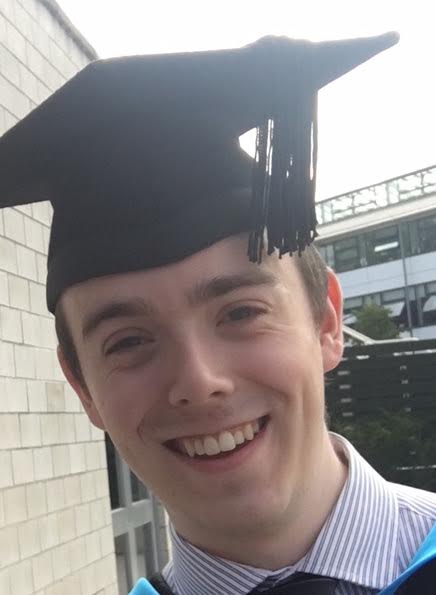The Force Awakens tells an incredible tale, but have we heard it all before?
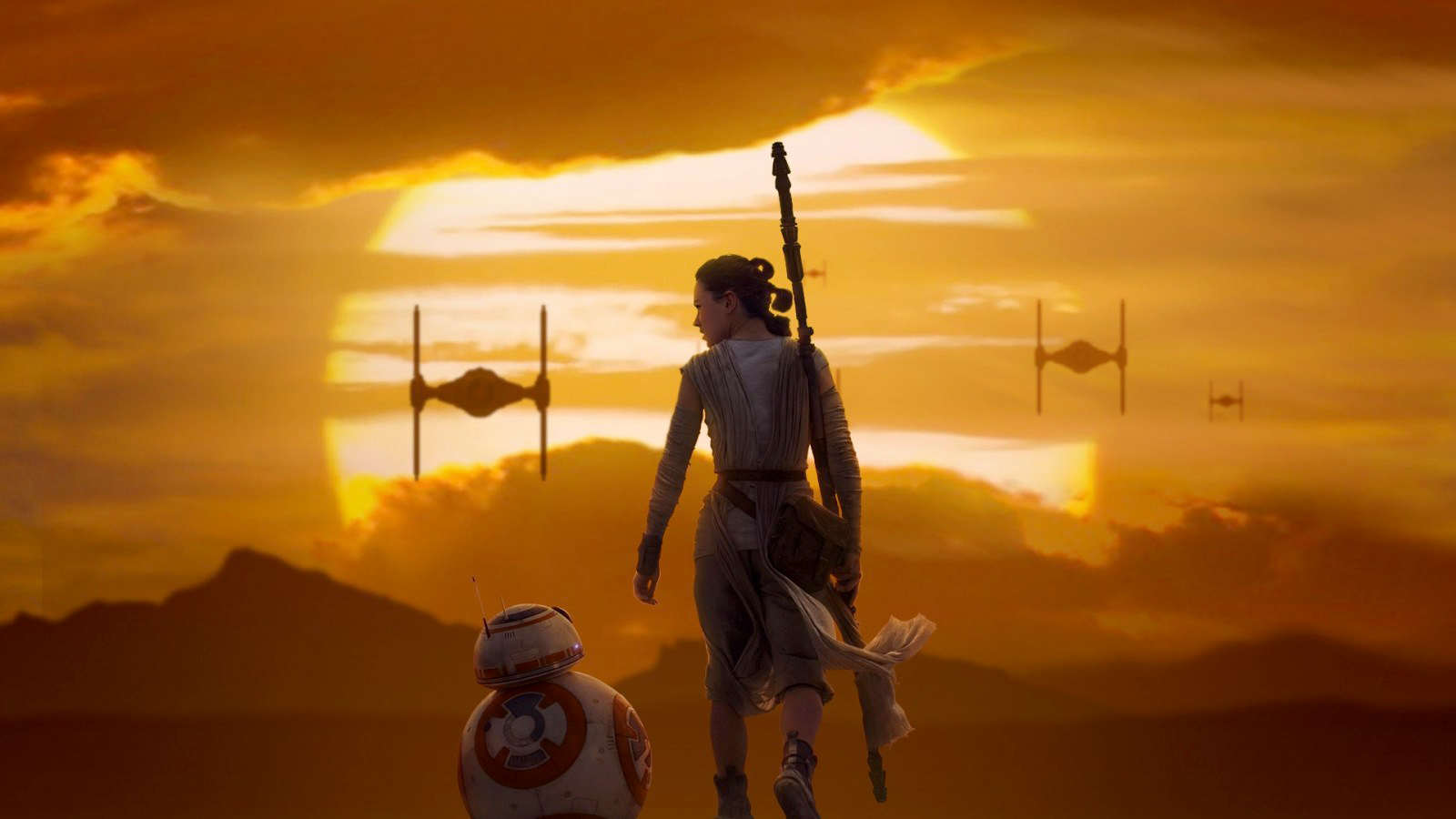
*There are spoilers aplenty for Star Wars: The Force Awakens below*
Star Wars taps into nostalgia in a way little else can. For decades, for my entire lifetime, in fact, it's been there, not only on the screen but in merchandise, in other media, and in the unfettered excitement of one of the world’s most prominent fanbases. So it was with little surprise that I felt a swell of emotion as that familiar blue text flashed onto the screen, followed swiftly by John Williams’ fanfare theme. I should’ve expected it, of course. Every entry from the seminal ‘77 classic to the much maligned prequels, opens with this blast of potent nostalgia, but what I couldn’t have predicted was for that this sense of déjà vu would linger throughout The Force Awakens’ 135 minute run-time.
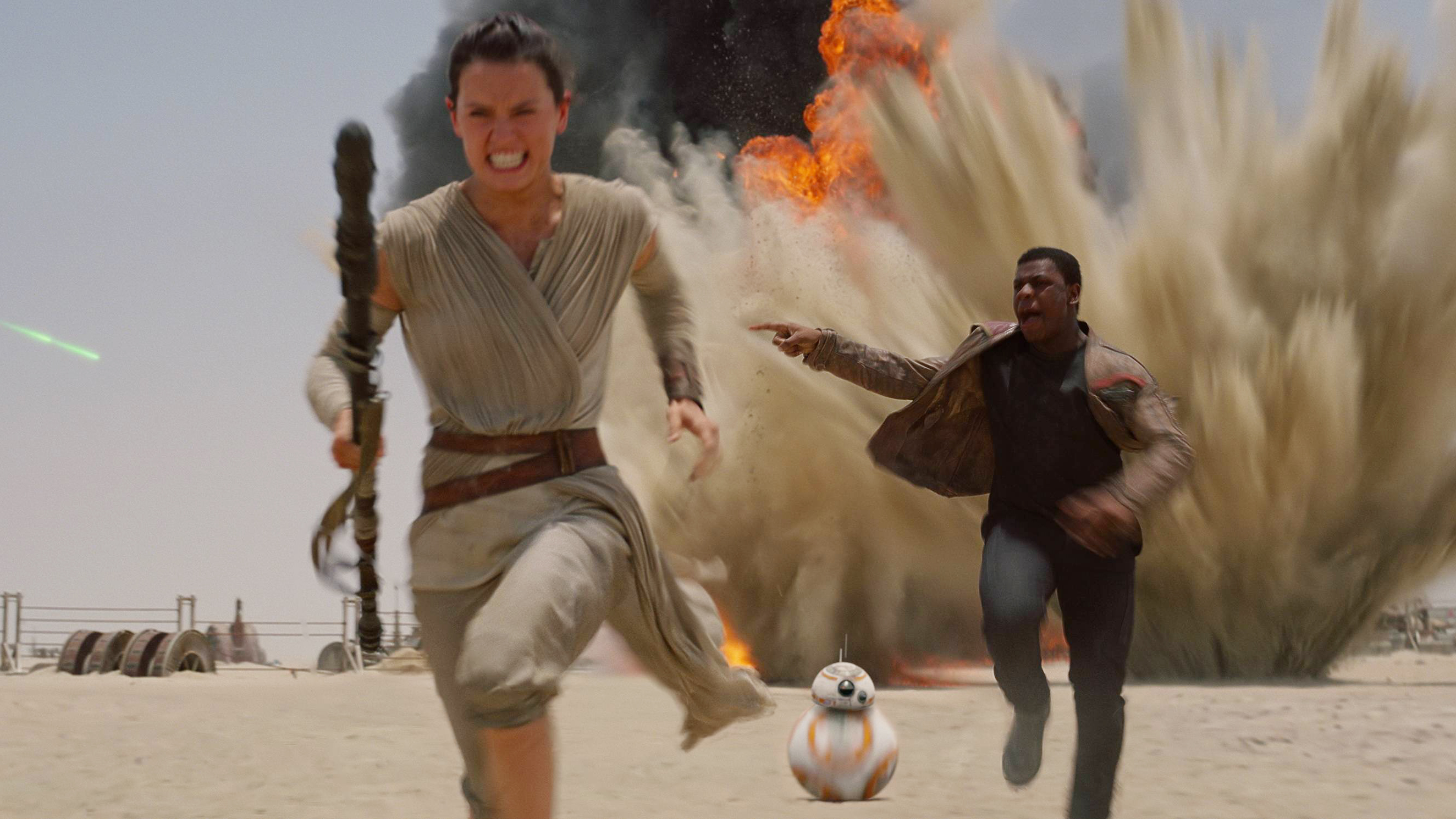
The plot begins in earnest with Poe Dameron stashing some important information into his droid pal, BB-8, who then whizzes off into the desert with the data in tow, off to deliver a message to the film's heroes. A nice nod to A New Hope, I thought. Rey - who fills the Luke Skywalker role - saves BB-8 from the scrap yard, teams up with a roguish companion (Finn) and a wise older man (Han) who knows the truth about the force. One callback begets another: Starkiller Base is a Death Star in all but name, and for a third time the Rebels (sorry, Resistance Fighters) find a weak point and blow it to bits. On board is an imposing force-sensitive leader, dressed head to-toe in black, with a red lightsaber.
Kylo Ren’s no Vader, less a formidable symbol of evil and more a conflicted, almost petulant, young man, torn between the two sides of his family history. TFA smartly justifies the aesthetic similarities, painting him as an insecure Vader fanboy, constructing an artificial, adolescant persona around the subject of his misguided affection. In-universe, it makes weighty narrative sense - he doesn't need that mask, it's an affectation. Regardless, the similarities are clear not just in the physical, but in the reveal of his family connections. And of course, in the way he brutally kills an unguarded war veteran while the heroes helplessly watch from afar. By his side are military officers commanding an army of stormtroopers, and behind the scenes lurks a mostly unseen evil, to whom Ren is subservient.
It sounds flippant to spell out the myriad ways in which echoes of the original trilogy permeate The Force Awakens, and so I won’t. This is surely a more pleasing alternative than the jarringly different prequels, but nonetheless, when a faux-Cantina scene rears its head it’s hard not to wonder: am I watching an updated Episode IV? Perhaps that’s unfair - for all its echoes of the past, Abrams’ entry does find ways to retell the legend uniquely.
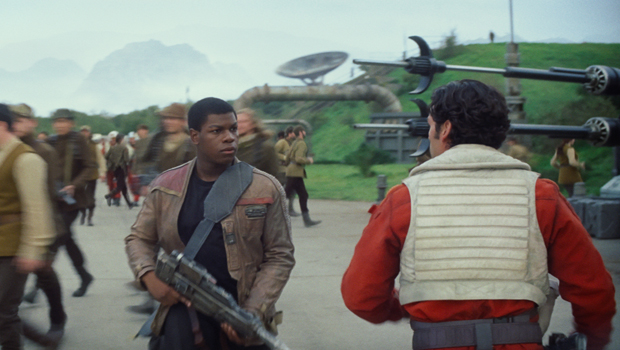
It looks stunning, for a start, especially in the aerial acrobatics that play out between TIE fighters, X-Wings and the Millennium Falcon. And its female cast is greatly expanded way beyond that of the previous films, from Daisy Ridley’s brilliant Rey, to Lupita Nyong’o’s Yoda-alike Maz Kanata, and Gwendoline Christie’s villainous Captain Phasma, wearing away its boys-club exterior. Similarly, the lightness of touch and humour throughout is the strongest the series has seen. Finn plays the fool enough to get plenty of laughs, but without compromising the heart of Star Wars for cheap gags. He’s a top-notch addition, with John Boyega having comic timing beyond his years, complemented brilliantly by a few withering looks and remarks from Rey. After the car-crash attempt at comic relief that was Jar Jar Binks, it would’ve been easy to keep the laughs to a minimum, but The Force Awakens treads the line perfectly.
It even succeeds in spite of, or perhaps because of, its familiarity, in pulling the rug from under my feet at a few moments. Though Kylo Ren’s true identity and his heavily signalled betrayal landed with a thud, the moment Rey, and not Finn, becomes the one to take down Ren caught me completely off-guard. An early scene in which Rey dispatches a group of guards as Finn hesitates to intervene should’ve given the game away. She’s clearly the more capable of the two, but the trailers had set Boyega up as a new Jedi hero so perfectly that I completely fell for that red-herring, and it was incredible. By remaining so similar in its overarching themes, the points at which it subverts it own tropes truly sing.
Sign up for the Total Film Newsletter
Bringing all the latest movie news, features, and reviews to your inbox
And therein lies the rub. The moments I love most, the ones I’ll gibber on about frantically for months to come to anyone who’ll listen, are the points where it breaks the mould, and there’s just not enough of them. There is, however, good reason for that. It was always an unenviable task, to deliver a fan-pleasing sequel in the wake of three movies that seemingly everyone bar George Lucas would sooner forget. TFA also had to bring new fans into the fold, set the scene for two more entries, and still feel like a Star Wars film (a feat, I think, it performs magnificently well).
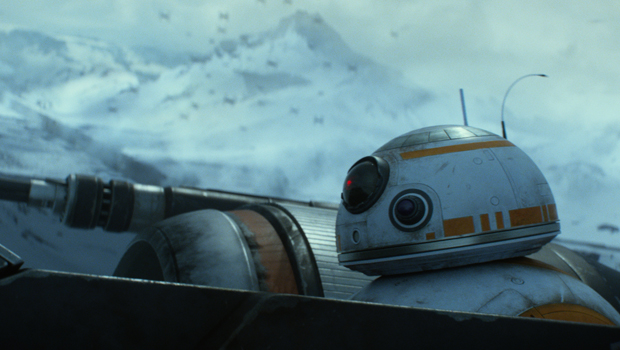
That in mind, there’s actually ample justification for TFA’s harks back to that distant galaxy’s past. Because The Force Awakens had two main jobs. It had to be a good Star Wars film, but before it could do that, it had to immediately reassure the fanbase. It had to get them on-side by showing them that this is a safe place - a job at which, judging by worldwide reaction, it has excelled. And the best, most effective way to do that was of course to seed its new story with echoes of the original trilogy.
And there’s justification in-narrative, too. Star Wars has always, at its core, been an epic fairytale with laser guns and spaceships, as well as an uber-focused telling of the classical Hero’s Journey - that Rey and Finn know the events of the original trilogy as myth is no coincidence. This is the stuff of legend. And by their very nature, these mythical tales must share a certain resonance with each other. Without that, the essence of Star Wars is lost, as the prequels found out the hard way. The Force Awakensis, for better and for worse, pure undiluted Star Wars. There’s not one point where it meanders off into boring galactic senate debates or into endless, sense-dulling, CGI lightsaber battles.
In terms of capturing that true Star Wars essence, it succeeds absolutely, and for many, even if the rest of the trilogy delivered a remix of what has gone before, that would be enough. It would probably be enough for me. But the prospect of the coming instalments breaking free, carving their own identities and defining on their own terms what makes Star Wars great, is too exciting to ignore. If the prequels strayed too far from the original formula, I hope that this trilogy will not, in fear of fan-backlash, stick too slavishly to the source material.
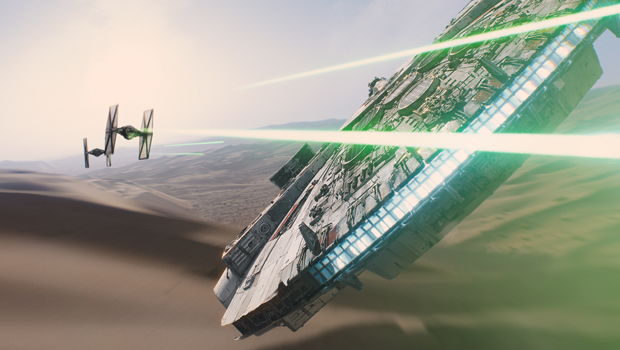
“Show me again, Grandfather, and I will finish what you started”, Kylo Ren muses to Vader’s scorched helmet in one of the most memorable scenes. I’d rather he, and Star Wars, started something new. Of course, in some ways, it already has. Rey and Finn are as likeable, warm and human as we could’ve hoped for - this rollercoaster ride of also nostalgia keeps the core plot uncluttered, leaving room for the characters to shine on a personal level. And the fact that we’ve already seen echoes of almost all of the original trilogy’s greatest hits suggests there’s plenty new in-store for The Last Jedi and IX, which won’t have quite the same burden of following years of mediocrity, nor will they have to set up a whole new cast. If they can shake this niggling feeling of déjà vu and still feel as true to Star Wars as The Force Awakens does, then 2017 (and beyond) promises to be stellar.
